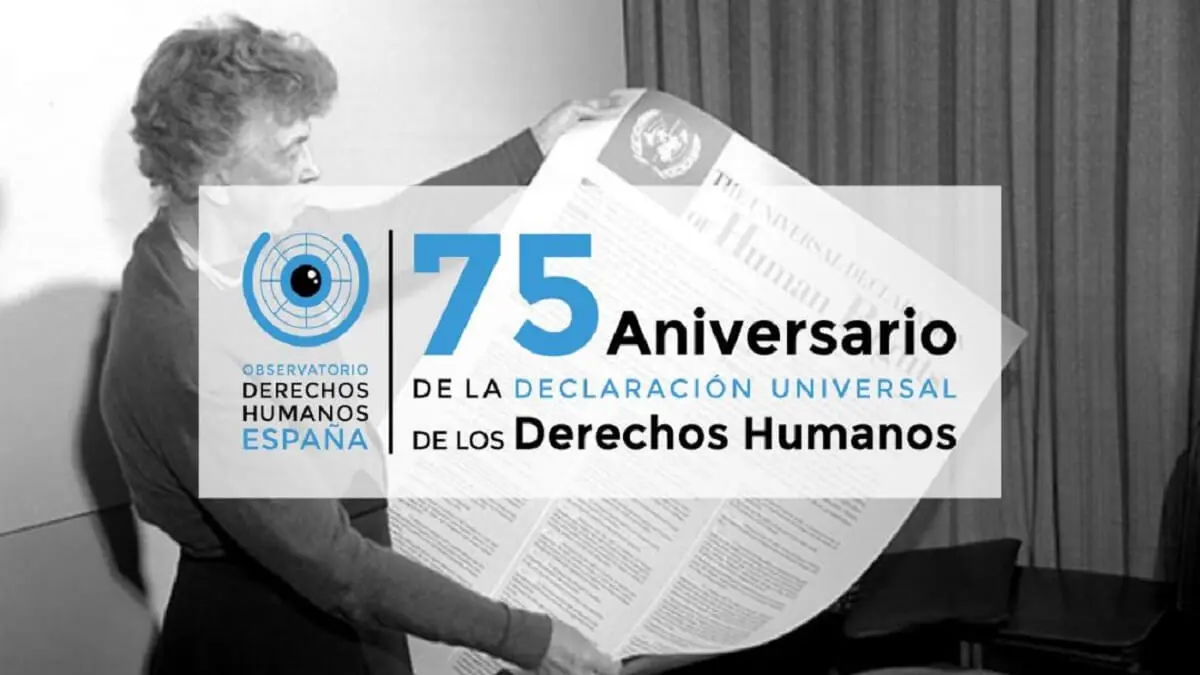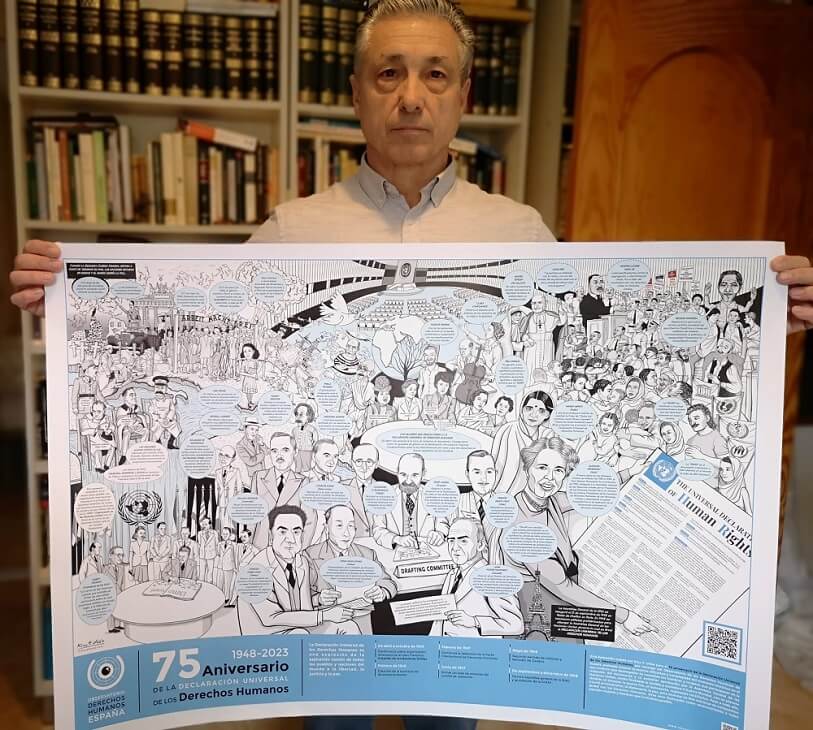75 years of the Universal Declaration of Human Rights: we must rescue the spirit of Paris

Today's conflictive reality subjects us to an almost daily litmus test of our perception of progress in the field of human rights. Hence the importance of giving special significance to this year's celebration of the 75th anniversary of the drafting and adoption of the United Nations Universal Declaration of Human Rights.
A group of men and women from different countries, cultures, religions - each bearing their terrible memories and aftermath of the Second World War - were able to weave an ethical and moral wickerwork strong enough to present, before the United Nations General Assembly in Paris, a consensual text that would lay the foundations of the universal horizon of human rights.
To imagine a milestone of this magnitude today, when our world map is torn apart by a multitude of wars, guerrilla warfare, terrorism and violence, would seem to be a philanthropic dream. However, the panorama after the world conflicts that ravaged humanity in the first half of the 20th century was no better, if not worse than today's, and even so, those leaders and diplomatic representatives achieved a success that today endures as an example for present and future generations.
Since that almost unanimous declaration, wherever there is a framework of freedom, there is no longer any debate on the human rights to be respected. Human rights, despite being violated in some parts of the world, have become the foundation on which all the social horizons of prosperity are built...
Prosperity: the words are important. I prefer it to the word progress. It is a fact that humanity has progressed, but we are as we are: we cannot be satisfied with the way our global reality is, that peace is battered in Ukraine, in Israel, in the Sahel, and in so many other parts of the planet, adding poverty, climate change and all kinds of hardship.
In the face of this progress, we must reclaim the spirit of the Universal Declaration and work tirelessly to turn our controversial progress into prosperity. Indeed, if we take the action of the verb prosper, the RAE dictionary takes us to the meaning of "to bring about prosperity", which has a strong sense of inclusiveness and solidarity.
Despite the times of turmoil that may affect us globally, human rights keep us on course for a world that is kinder to ourselves. If 75 years ago the foundations were laid for the horizon towards which we must walk, now we have a valuable roadmap in the form of the Sustainable Development Goals (SDGs).

Let us redouble our commitment to continue to build on the presence and relevance of the Universal Declaration and the opportunity provided by the SDGs, as this will be the best tribute to those who bequeathed us the Universal Declaration. In keeping with the importance of words, let us be aware that we are legatees of the Universal Declaration. Hence, we are obliged to maintain and fan the ethical and moral flame left to us by that General Assembly of the United Nations in Paris in 1948.
On this occasion, we are organising an event to celebrate the 75th anniversary of the Universal Declaration on 12 December, a date as close as possible to the United Nations World Human Rights Day. With the support of the Instituto de Formación Integral en Seguridad y Emergencias de la Comunidad de Madrid (IFISE), the digital newspaper El Español and its edition of Enclave ODS, as well as the Academy of Diplomacy of the Kingdom of Spain, our Observatorio de los Derechos Humanos de España (ODHE) and the International Police Association (IPA España) we call on the public to pay a heartfelt tribute to those men and women who played a decisive role in the drafting and adoption of the Universal Declaration in 1948.
We will do so by means of an illustration created specifically and uniquely for this event. We will also recognise the main Spanish institutions which, in our opinion, provide the institutional framework within which our field of human rights is developed.
This institutional framework, especially the legal one, is the basis on which the respect, safeguarding and development of human rights in any country and society is founded. Failing this foundation leads to the immediate deterioration of the main line of defence of human rights, since without legal certainty the perimeter of human rights cannot be established, nor their subsequent real application. Hence the unquestionable importance of the separation of powers in a state under the rule of law.
On the side of civil society, fortunately, there are many entities and individuals working to promote the culture and values of human rights in our country. We hope that many of them will join us on 12 December to recognise the work of the drafters of the Universal Declaration and those who made its adoption possible.
Spain is a country firmly committed to human rights. It is clear that the best and greatest legacy of our Transition is the Constitution which protects us and which contains a strong democratic and institutional commitment to the preservation of the human rights framework and which encourages Spain to become an international standard bearer for humanitarian law.
There is still a long way to go and many areas to be addressed more effectively and with greater resources, but we have a point of support that allows us to apply the necessary leverage: Spanish society and its civil society network feel that we are the legatees of the Universal Declaration of Paris.
Mario Rigau Oliveras is President of the Observatory of Human Rights in Spain.
Article published in El Español on 7 December 2023


